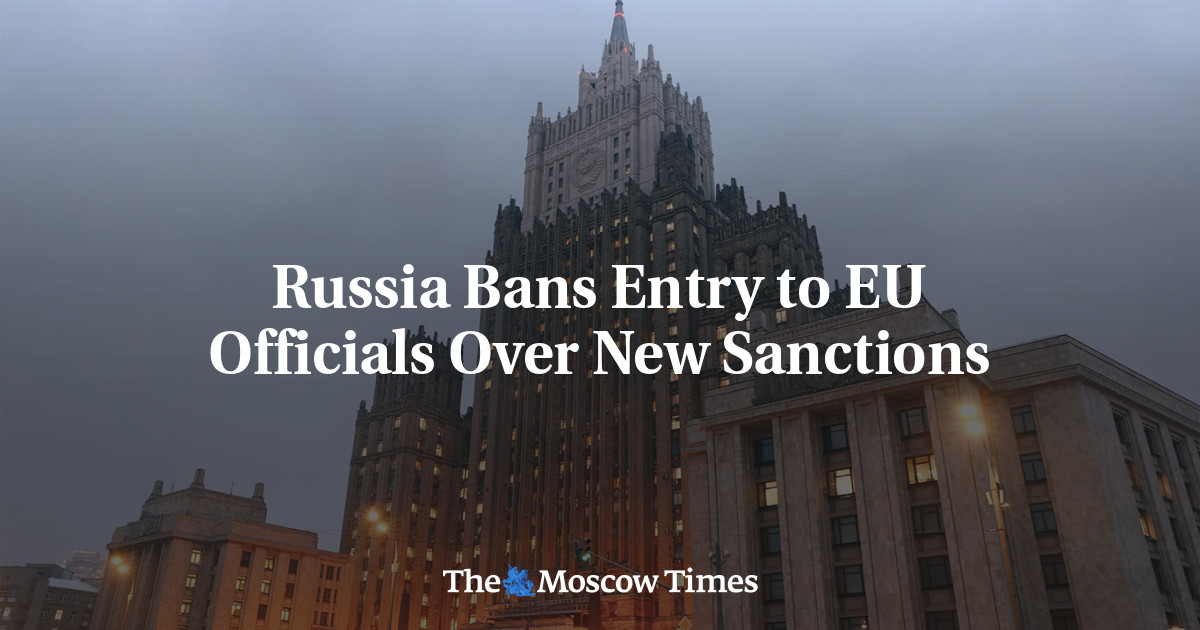
Russia’s Foreign Ministry announced Friday that it has “significantly” expanded an entry ban for European officials in response to the EU’s “illegal and unfriendly” sanctions on the eve of the second anniversary of the war in Ukraine.
The EU’s 13th round of sanctions, adopted on Wednesday, targets 200 officials and entities mainly from Russia involved in the conflict. Brussels also agreed to ban exports to three Chinese firms and place sanctions on North Korea’s Defense Minister.
Russia’s Foreign Ministry did not specify the number of EU officials affected by its retaliatory entry ban, nor did it provide their names.
It did say, however, that the ban includes members of the Council of Europe, EU members’ legislative assemblies and participants of the Parliamentary Assembly of the Organization for Security and Cooperation in Europe (PA OSCE).
Russia’s Foreign Ministry said those officials “systematically make aggressive statements against Russia.”
The list also includes unidentified EU citizens who are said to have provided military assistance to Ukraine, members of legal structures who are prosecuting Russia’s leadership and those seeking to seize Russian assets.
The EU has sanctioned some 2,000 officials and entities in the two years since Moscow launched what it calls a “special military operation.”
However, Russia’s economy has largely managed to weather the economic storm and the Kremlin has ramped up its military production.
The second anniversary of the invasion on Saturday comes as Ukrainian forces are losing ground and the future of military support from the United States remains in doubt.